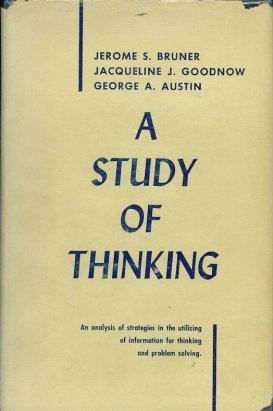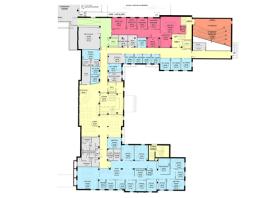We believe there should be a university that is solely dedicated to the in-depth exploration of “thinking”.



Earlier we wrote some Thinkibility Nibbles about how a University that teaches how to think, not what, might look like. In the West Wing scientists and students dissect the existing basic thinking patterns in a scientific discipline. In contrast to this, in the East Wing scientists and students will study the thinking strategies of the world’s most creative, most critical and/or most profound thinkers at the moment. They will re-engineer, or reverse engineer their thinking, in order to learn new ways how to think.
Before entering the Thinkibility University candidates will have a profound understanding of thinking as-a-skill. They are able to apply structured thinking techniques and are well-educated in the foundations of most scientific disciplines. They are able to express their thinking in written form, but also in a visual way. They have experienced how thinking influences emotions and vice-versa, and how groups define the thinking and the other way around. The Thinkibility Bootcamp is analogous to a Physical Bootcamp.

Topics in the bootcamp thinkibility skills training could be the following one. If it is referred to a link, it means that we have published on the blog some preliminary explorations into the topic.
- rational thinking techniques as used in problem-solving, decision-making, risk management, etc
- critical thinking techniques
- observation of the thinking and thinking patterns
- philosophical thinking tools
- cognitive psychology
- creative thinking techniques like lateral thinking, TRIZ, biomimicry, brainstorming, etc
- philosophy of science and other approaches to knowing what is (un)true
- sociology of science
- design thinking techniques
- perception and information
- system thinking
- visual representation techniques, like mind-mapping, concept mapping, drawing and sketching
- art and innovation
- conceptual thinking
- emotions, feelings and thinking
- studying the mind, like meditation techniques, outdoor training, solo trekking
- new business models
- social innovation
- an overview of the basic foundations of scientific disciplines like sociology, economics, computer sciences, brain research, etc
- facilitating collaborative brains
And of course, study skills like speed reading, memory, presentation techniques, note taking, etc





The key issue in the Thinkibility University Bootcamp is practice thinking.
Next time some reflections on what happens in the Art and Innovation wing. There must be a connection, but what could it be?
And about another wing: Language, Culture and Thinking as an important faculty at the Thinkibility University. Is thinking really universally?
